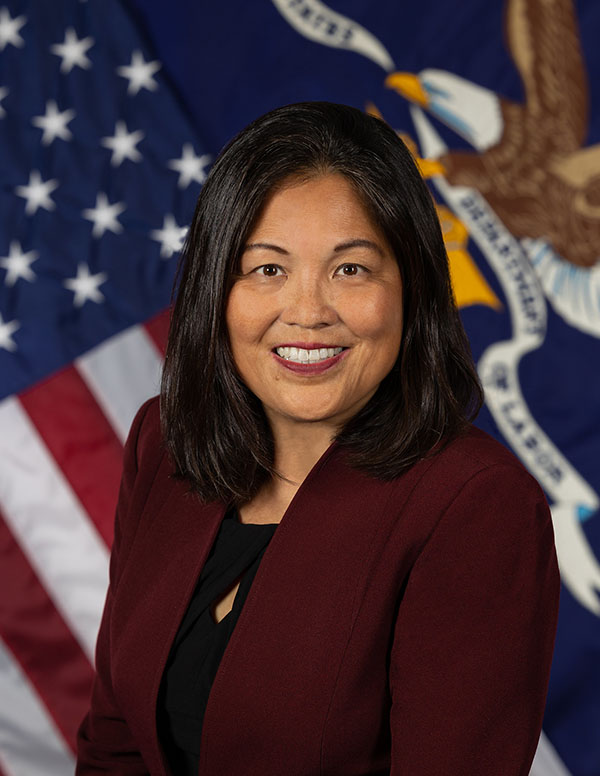The Department of Labor (DOL) has denied that it planned to increase investigative efforts targeted at brokerage windows following the release last year of a compliance assistance bulletin implying that investigations would extend to plans that offer cryptocurrency through a brokerage window.
 More specifically, in response to questions posed by members of the House Education and the Workforce Committee, Acting Labor Secretary Julie Su said that the DOL’s Employee Benefits Security Administration (EBSA) is focused primarily on fiduciaries’ oversight and selection of designated investment alternatives.
More specifically, in response to questions posed by members of the House Education and the Workforce Committee, Acting Labor Secretary Julie Su said that the DOL’s Employee Benefits Security Administration (EBSA) is focused primarily on fiduciaries’ oversight and selection of designated investment alternatives.
“It is important to note that EBSA has not increased its investigative efforts with respect to brokerage windows after issuance of Compliance Assistance Release No. 2022-01,” Su stated in her written response to questions submitted following a June 2023 hearing by the committee that examined the DOL’s policy priorities.
Notably, while the underlying issue involves the offering of cryptocurrency by plans, the bigger issue addressed in the Q&A appears to be whether an additional duty of prudence has been imposed on a single asset type within a brokerage window.
CAR No. 2022-01
As part of the questions submitted to Su, the committee members noted that the DOL’s March 2022 compliance assistance release on cryptocurrency included language implying that DOL investigations would extend to brokerage windows—perhaps to investments available through brokerage windows and to participant self-directed trades inside a brokerage window.
The compliance assistance release listed several items that the DOL suggests may be relevant to a plan fiduciary’s decision to include cryptocurrencies, including issues related to volatility, administration and valuation, and concluded with a statement noting that EBSA has “serious concerns” about the investment of plan assets in cryptocurrency.
While it’s not spelled out in the Q&A document issued by the committee, the following paragraph appears to be the section that caught the attention of the Committee members with respect to plans that offer cryptocurrencies:
“[EBSA] expects to conduct an investigative program aimed at plans that offer participant investments in cryptocurrencies and related products, and to take appropriate action to protect the interests of plan participants and beneficiaries with respect to these investments. The plan fiduciaries responsible for overseeing such investment options or allowing such investments through brokerage windows should expect to be questioned about how they can square their actions with their duties of prudence and loyalty in light of the risks described above.”
In noting that this has “created tremendous public concern,” the Committee asked whether the DOL intends to “use enforcement resources to investigate plan sponsors in connection with brokerage window offerings,” and if not, whether the Department intends to publish a clarification.
“In the context of participant-directed retirement plans, EBSA continues to focus primarily on fiduciaries’ oversight and selection of designated investment alternatives, as opposed to the individual actions of plan participants within brokerage windows, which typically constitute a small proportion of plan investments,” the Acting Labor Secretary stated in response.
Su went on to warn, however, that fiduciaries are still subject to the duties of prudence and loyalty in offering a brokerage window to participants. “As described in Field Assistance Bulletin 2012-02 R, however, ‘fiduciaries of … brokerage windows, self-directed brokerage accounts, or similar plan arrangements that enable participants and beneficiaries to select investments beyond those designated by the plan are still bound by ERISA section 404(a)'s statutory duties of prudence and loyalty to participants and beneficiaries who use the platform or the brokerage window, self-directed brokerage account, or similar plan arrangement, including taking into account the nature and quality of services provided in connection with the platform or the brokerage window, self-directed brokerage account, or similar plan arrangement,’” Su wrote.
Additionally, the Acting Labor Secretary reminded that plan fiduciaries must maintain records regarding investments made through self-directed brokerage accounts or similar arrangements to comply with annual financial reporting and related recordkeeping obligations under ERISA. “These remain potential issues in any EBSA investigation when the plan has a brokerage window option for participants,” Su further emphasized.
Previous Pushback
The DOL’s release of CAR No. 2022-01 in March 2022 resulted in additional pushback from members of Congress, as well as a lawsuit filed against the DOL’s informal guidance that was later dismissed.
In February 2023, Sen. Tommy Tuberville (R-AL) reintroduced his Financial Freedom Act targeting the DOL’s compliance assistance release by prohibiting the DOL from issuing a regulation or guidance that limits the type of investments that self-directed 401(k) account investors can choose through a brokerage window.
In addition, the legislation seeks to hold harmless 401(k) plan fiduciaries that authorize individual retirement savers to self-direct their investment choices using a brokerage window. Rep. Bryon Donalds (R-FL) introduced companion legislation in the House of Representatives.
At the same time, however, several members of Congress supported the DOL’s guidance and pushed back against plan providers from offering cryptocurrency.
As to the lawsuit, recordkeeper and cryptocurrency service provider ForUsAll in June 2022 filed suit against the Labor Department, contending that CAR 2022-01 violated the Federal Administrative Procedure Act, but the suit was dismissed in August 2023, with the judge essentially concluding that the DOL operated within its legal “lanes” in reminding plan fiduciaries of their duties of prudence.

